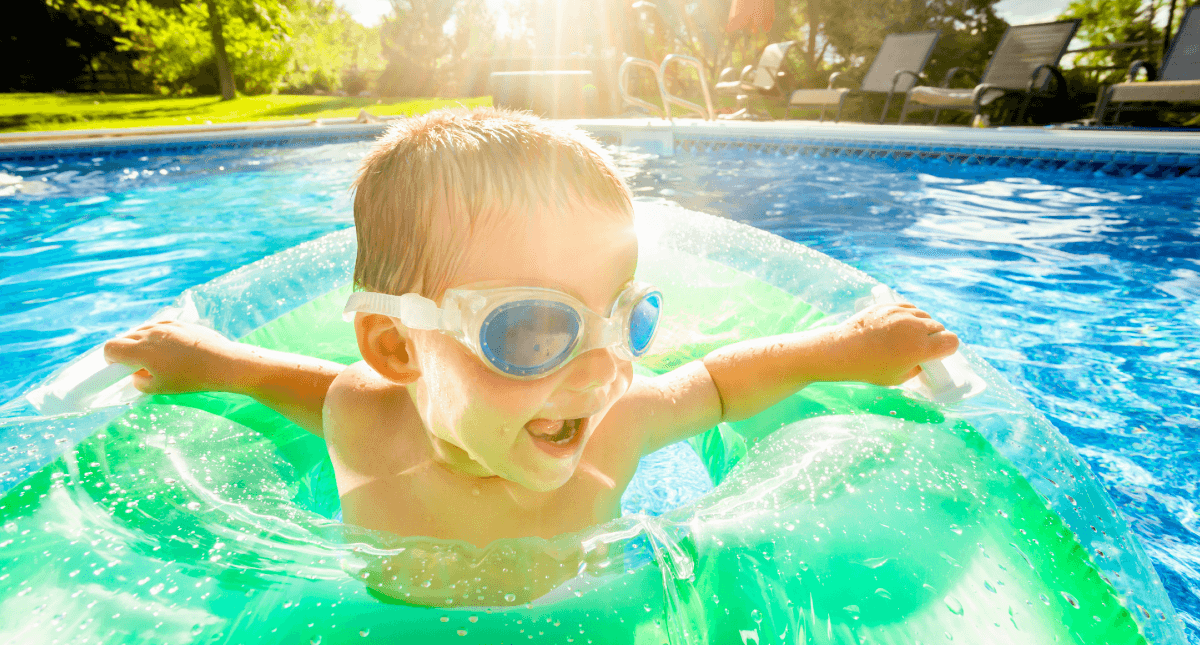Blog

11 safety tips every pool owner should know
Days are getting longer, temps are rising, schools are closing. For people who own pools and hot tubs, that means two things: more time in the water, and more need for precautions. According to the Centers for Disease Control and Prevention (CDC), an average of more than 4,000 people accidentally drown every year.
Make sure your summer is good fun, not bad luck with these 11 pool safety tips.
- Create barriers. For starters, surround your pool with a fence or barrier that’s at least 4-feet high with a self-closing, self-locking gate. Use safety covers when your pool or tub isn’t being used, and remove any ladders. Install alarms on any doors or windows that exit to the pool area. Want to be extra sure? A pool alarm can tell you when someone enters the water, and security cameras will keep an eye on things when you’re not home.
- Keep an eye on the little ones. No one should ever swim alone—at any age. Children shouldn’t be left unattended, even for a few seconds, and should wear a swim vest if they’re not experienced. Don’t rely on flimsy noodles or water wings. And be sure to remind your babysitters about rules for in and around the pool.
- Learn to swim. Make sure everyone who uses your pool knows how to stay afloat, and enroll your kids in swimming lessons at an early age. The Red Cross, YMCA, and your local parks and recreation department are great resources for budget-friendly learn-to-swim classes.
- Follow the rules. Your pool, your rules, and don’t be afraid to enforce them—things like no running, no glass bottles, no diving and no swimming alone. Alcohol plays a part in up to 70% of all adolescent and adult water recreation deaths, so limit the booze and keep a close eye on all pool parties.
- Stay away from drains and suction outlets. Hair, jewelry, clothing or even bathing suits can easily get caught. Suction force from vacuums, filters and other devices can also prevent a child from reaching the surface. Make sure people know how to turn them off. And never enter a pool or hot tub with a missing drain cover.
- Know what to do in an emergency. You have the right safety and rescue equipment—the ring buoys, poles and first aid kit. Now take the time to learn basic water rescue skills. Maybe take a water safety and first aid course. CPR certification is also a must; contact your local American Red Cross or community hospital to learn more. Always keep a phone nearby with emergency phone numbers.
- Keep your pool maintained. Clean out leaves and twigs that could clog the drain or filter, and regularly test chemical levels. If they’re not balanced, it could lead to health problems, such as ear infections and skin rashes.
- Evaluate the diving hazard. Diving is a leading cause of pool-related accidents. Depending on the size and depth of your pool, you may want to prevent diving altogether. Even if your pool is built for it, be sure to post water depths so swimmers know where diving is safe—and where it’s not. Always keep toys and debris away from the diving area.
- Remove toys when they’re not being used. Nothing tempts a small child to reach in or jump in more than seeing their favorite water toy floating by. Avoid any temptation by removing all toys when you leave the pool area.
- Watch the weather. Rain and lightning often go hand in hand, so play it safe and stay away from the water during bad weather.
- Review your insurance coverage. Talk with your insurance agent if you’re thinking about buying a home with a pool or installing one. Not all insurers will cover a home with a pool. Keep in mind that owning a pool will likely increase your insurance liability, especially if it comes with a diving board or slide.
For information only. Not applicable to all situations.







